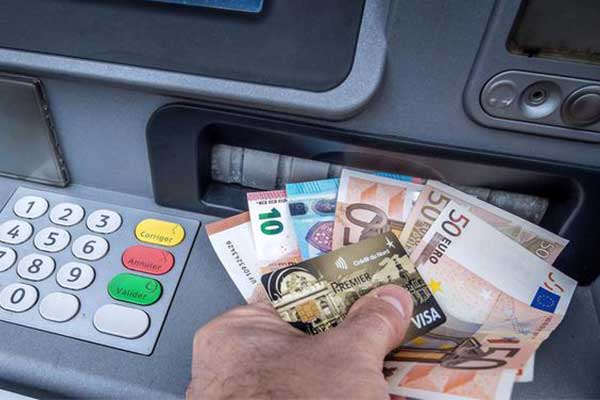With a stock of offshore wealth valued at 15% of GDP, France is above the world average, according to a recent study. A considerable shortfall for public finances.
These are figures that could revive the debate on tax evasion by French taxpayers. According to a recent study, French households hold approximately 300 billion euros in tax havens, or 15% of France’s GDP (gross domestic product). As for the 0.01% of the wealthiest households, ie around 3,520 households, they would alone hold almost 50% of this wealth: ie 150 billion euros.
Here are the main lessons, for France, of the study “Who owns the wealth in tax havens. Macroeconomic evidence and its effects on global inequalities”, published by three researchers including the Frenchman Gabriel Zucman. The latter confirms the figures mentioned above in Figaro. A professor in Berkeley, California, Gabriel Zucman had Thomas Piketty, author of the best-selling book Capital in the 21st Century, as his thesis supervisor.
Summary
Tax exile: France above average
With a stock of offshore wealth at 15% of GDP, France is above the world average, estimated by the study at 9.8%. France, for example, does far less well than countries like Denmark, Finland or Norway. In these countries, where the tax burden is strong, however, the wealth placed in tax havens amounts to around 3% of GDP. This is enough to qualify the argument that the tax burden scares away capital. This is in any case the thesis of the authors. “The level of assets in tax havens cannot be explained simply by differences in tax rates or other financial and institutional parameters,” they explain.
In terms of tax evasion, France is on the other hand at a level comparable to that of Germany and the United Kingdom. And does much better than some countries like Venezuela, whose stock of offshore wealth is estimated at more than 60% of its GDP.
What do these 300 billion represent?
The 300 billion euros placed by the French in tax havens represent a considerable loss of tax revenue for the French State, especially in times of public finance crisis. In 2016, France’s public deficit stood at 3.4% of GDP, or 75.9 billion euros. Other elements of comparison to understand this figure: in 2016, the respective GDPs of Norway and Austria amounted to 310 billion and 320 billion euros.
Finally, this study, published this month, emerges in a very specific context. The Minister for Action and Public Accounts – Gérald Darmanin – recently announced that the tax regularization unit would close on 31 December. As a reminder, the question of tax exile had also returned to the fore after the global scandal of the Panama Papers, in April 2016. Bercy had then launched 560 tax audits against households suspected of having concealed money in tax havens, such as the Bahamas and the British Virgin Islands, through front companies.
What do other studies say?
Studies on tax evasion are relatively rare due to the opacity that reigns over tax havens. In a book published in 2012, the great reporter for La Croix Antoine Peillon quantified the amount of French assets hidden abroad at 600 billion, of which around 250 billion are held by individuals and the rest by companies. This figure of 250 billion euros is therefore close to the 300 billion mentioned in the study by Gabriel Zucman. Contacted by Le Figaro, Manon Aubry – spokesperson for the NGO Oxfam France – believes that “Gabriel Zucman’s study is the most precise and reliable concerning assets held by French people”. Same story with Vincent Drezet of the Solidaires finances publics union: “It is difficult to have precise figures on undeclared assets. Gabriel Zucman’s study is probably the most detailed study on the subject to date,” he explains.
With a stock of offshore wealth valued at 15% of GDP, France is above the world average, according to a recent study. A considerable shortfall for public finances.
These are figures that could revive the debate on tax evasion by French taxpayers. According to a recent study, French households hold approximately 300 billion euros in tax havens, or 15% of France’s GDP (gross domestic product). As for the 0.01% of the wealthiest households, ie around 3,520 households, they would alone hold almost 50% of this wealth: ie 150 billion euros.
Here are the main lessons, for France, of the study “Who owns the wealth in tax havens. Macroeconomic evidence and its effects on global inequalities”, published by three researchers including the Frenchman Gabriel Zucman. The latter confirms the figures mentioned above in Figaro. A professor in Berkeley, California, Gabriel Zucman had Thomas Piketty, author of the best-selling book Capital in the 21st Century, as his thesis supervisor.
Tax exile: France above average
With a stock of offshore wealth at 15% of GDP, France is above the world average, estimated by the study at 9.8%. France, for example, does far less well than countries like Denmark, Finland or Norway. In these countries, where the tax burden is strong, however, the wealth placed in tax havens amounts to around 3% of GDP. This is enough to qualify the argument that the tax burden scares away capital. This is in any case the thesis of the authors. “The level of assets in tax havens cannot be explained simply by differences in tax rates or other financial and institutional parameters,” they explain.
In terms of tax evasion, France is on the other hand at a level comparable to that of Germany and the United Kingdom. And does much better than some countries like Venezuela, whose stock of offshore wealth is estimated at more than 60% of its GDP.
What do these 300 billion represent?
The 300 billion euros placed by the French in tax havens represent a considerable loss of tax revenue for the French State, especially in times of public finance crisis. In 2016, France’s public deficit stood at 3.4% of GDP, or 75.9 billion euros. Other elements of comparison to understand this figure: in 2016, the respective GDPs of Norway and Austria amounted to 310 billion and 320 billion euros.
Finally, this study, published this month, emerges in a very specific context. The Minister for Action and Public Accounts – Gérald Darmanin – recently announced that the tax regularization unit would close on 31 December. As a reminder, the question of tax exile had also returned to the fore after the global scandal of the Panama Papers, in April 2016. Bercy had then launched 560 tax audits against households suspected of having concealed money in tax havens, such as the Bahamas and the British Virgin Islands, through front companies.
What do other studies say?
Studies on tax evasion are relatively rare due to the opacity that reigns over tax havens. In a book published in 2012, the great reporter for La Croix Antoine Peillon quantified the amount of French assets hidden abroad at 600 billion, of which around 250 billion are held by individuals and the rest by companies. This figure of 250 billion euros is therefore close to the 300 billion mentioned in the study by Gabriel Zucman. Contacted by Le Figaro, Manon Aubry – spokesperson for the NGO Oxfam France – believes that “Gabriel Zucman’s study is the most precise and reliable concerning assets held by French people”. Same story with Vincent Drezet of the Solidaires finances publics union: “It is difficult to have precise figures on undeclared assets. Gabriel Zucman’s study is probably the most detailed study on the subject to date,” he explains.




